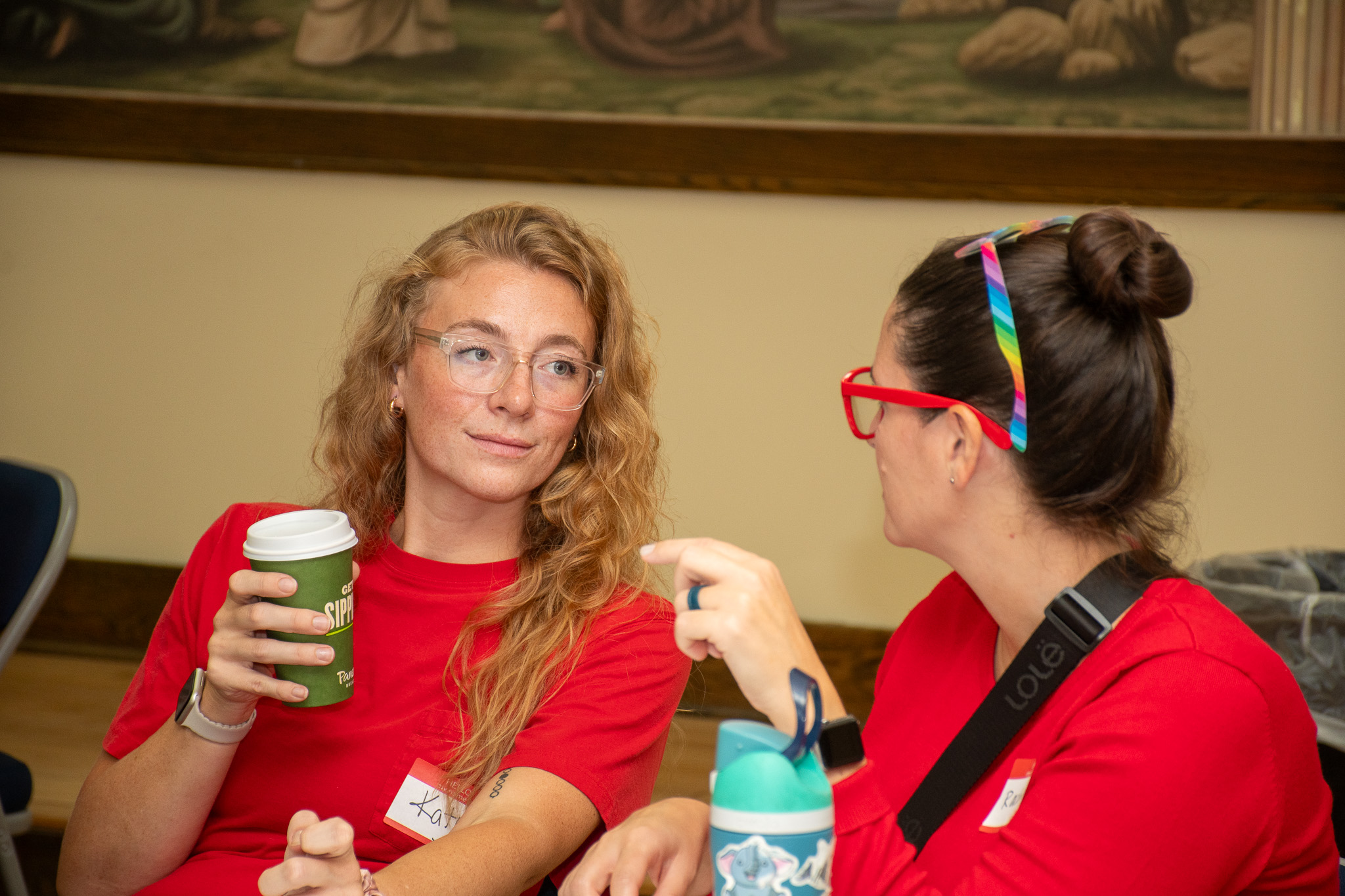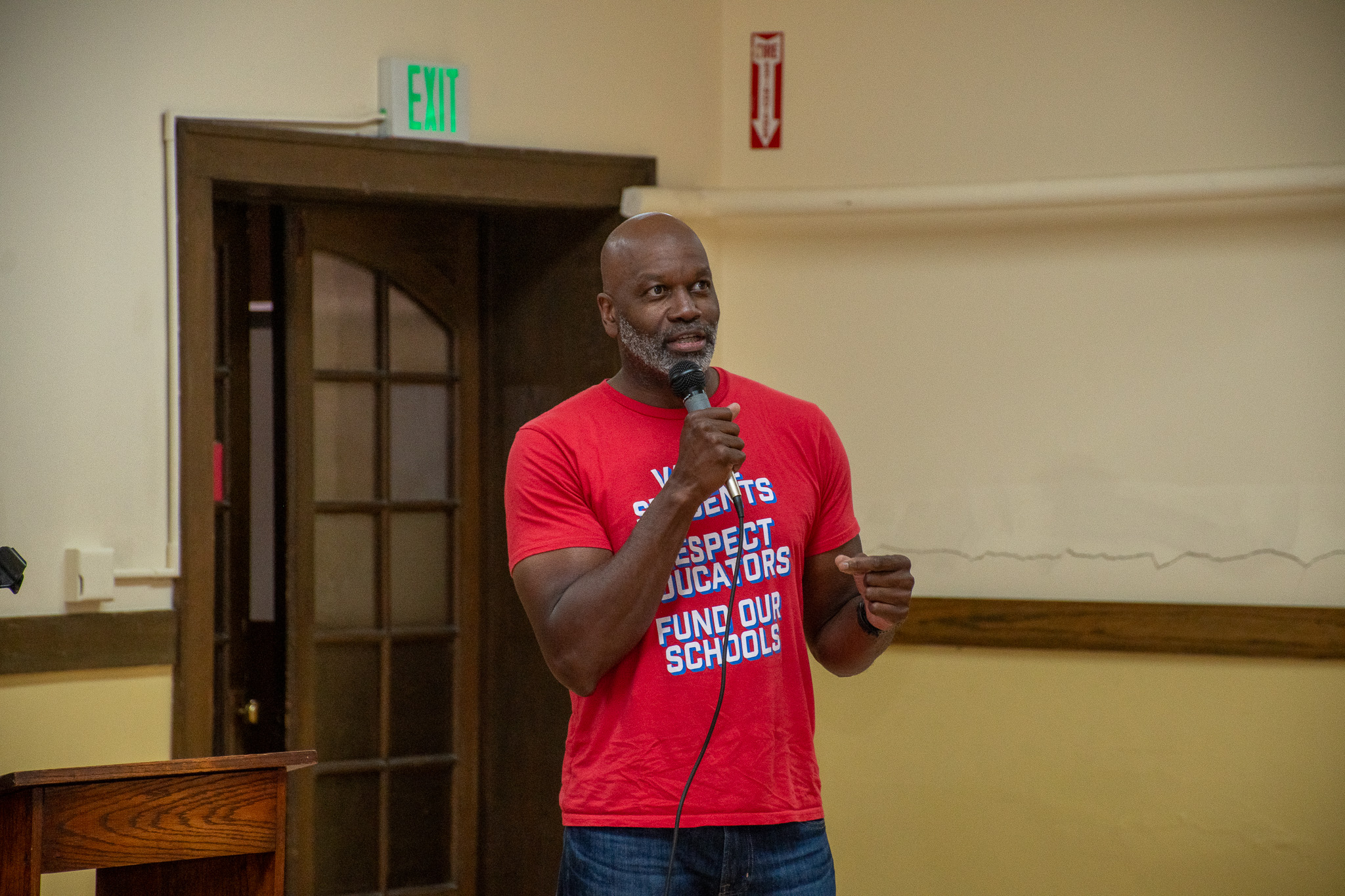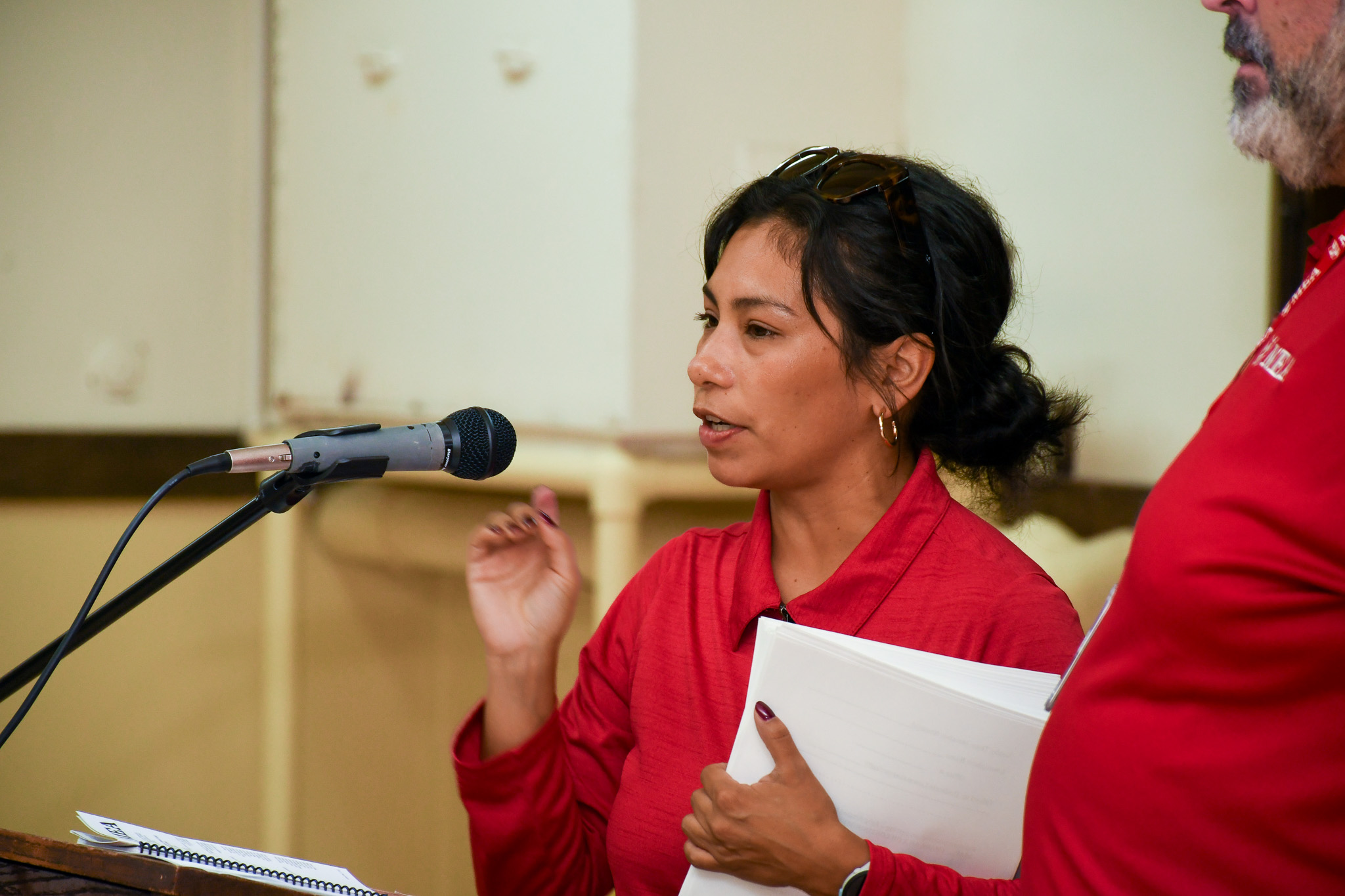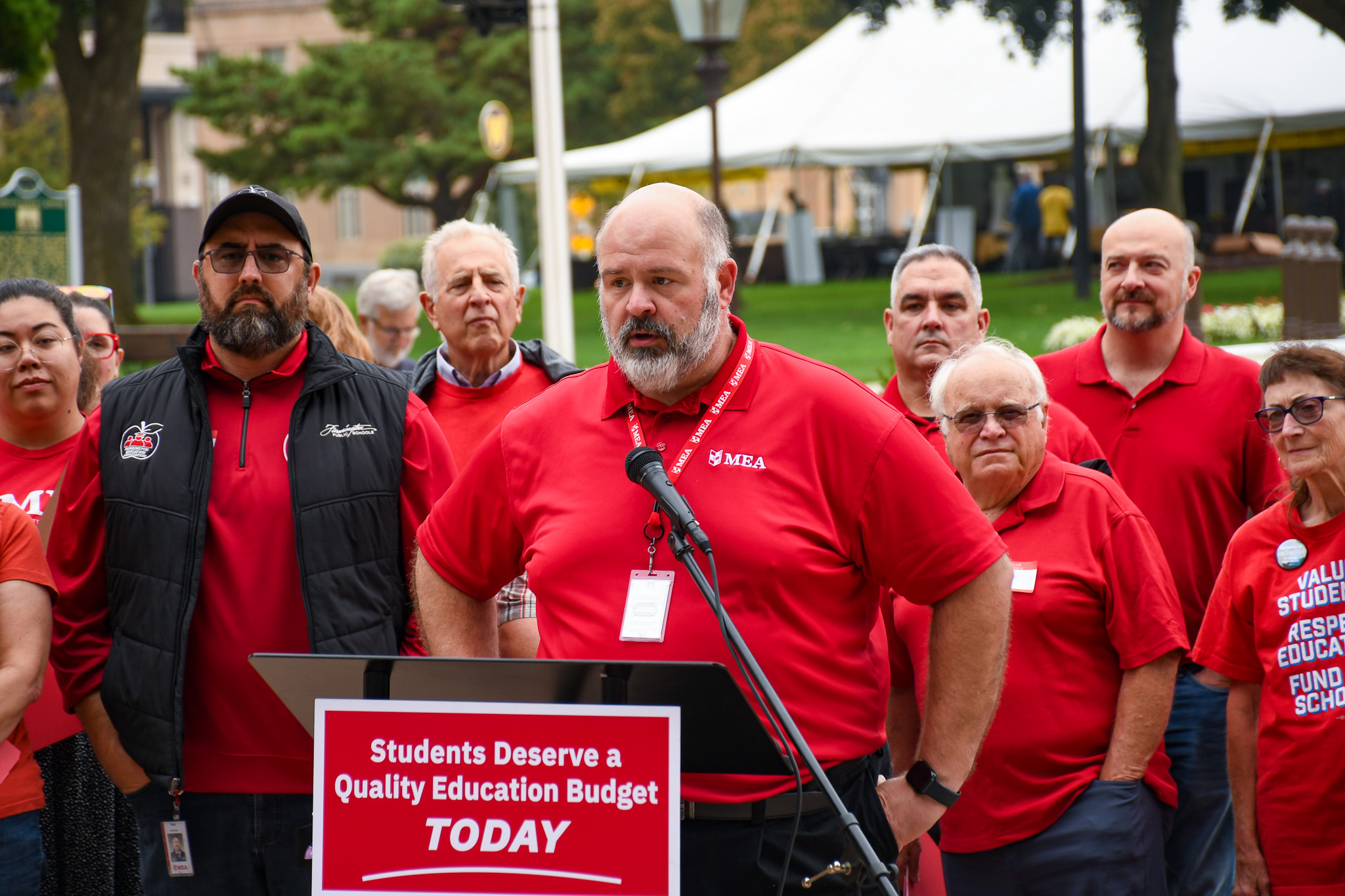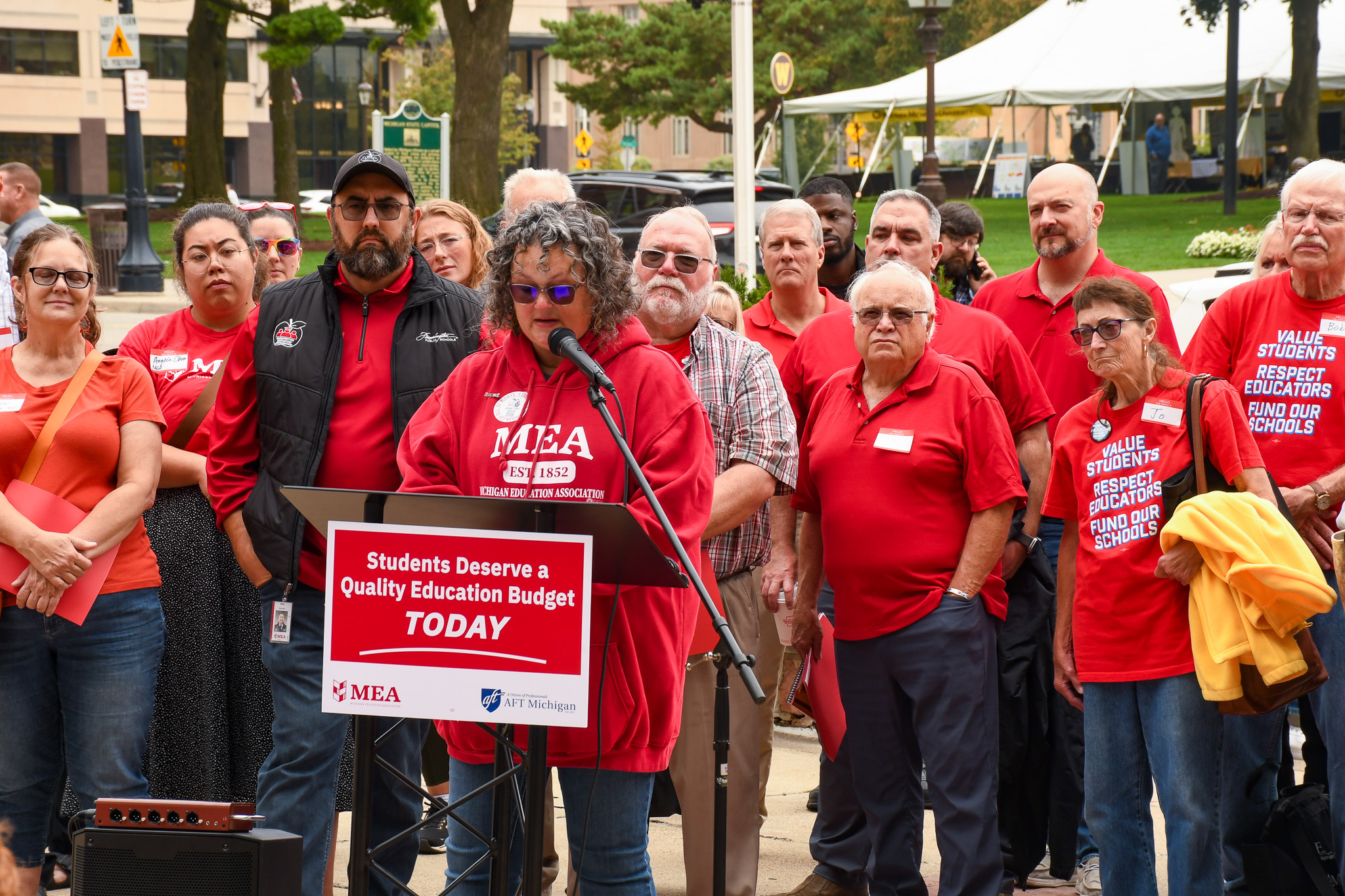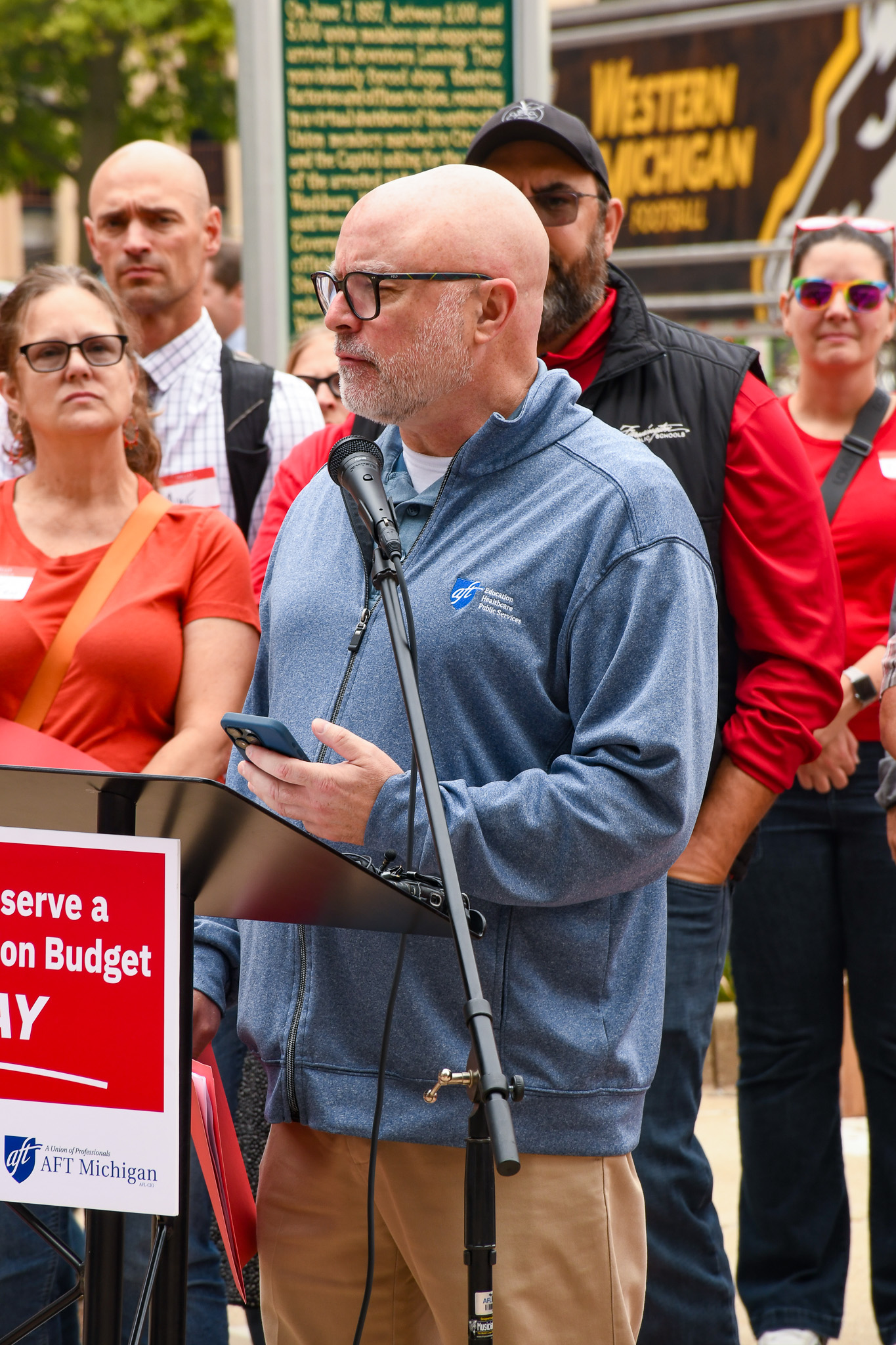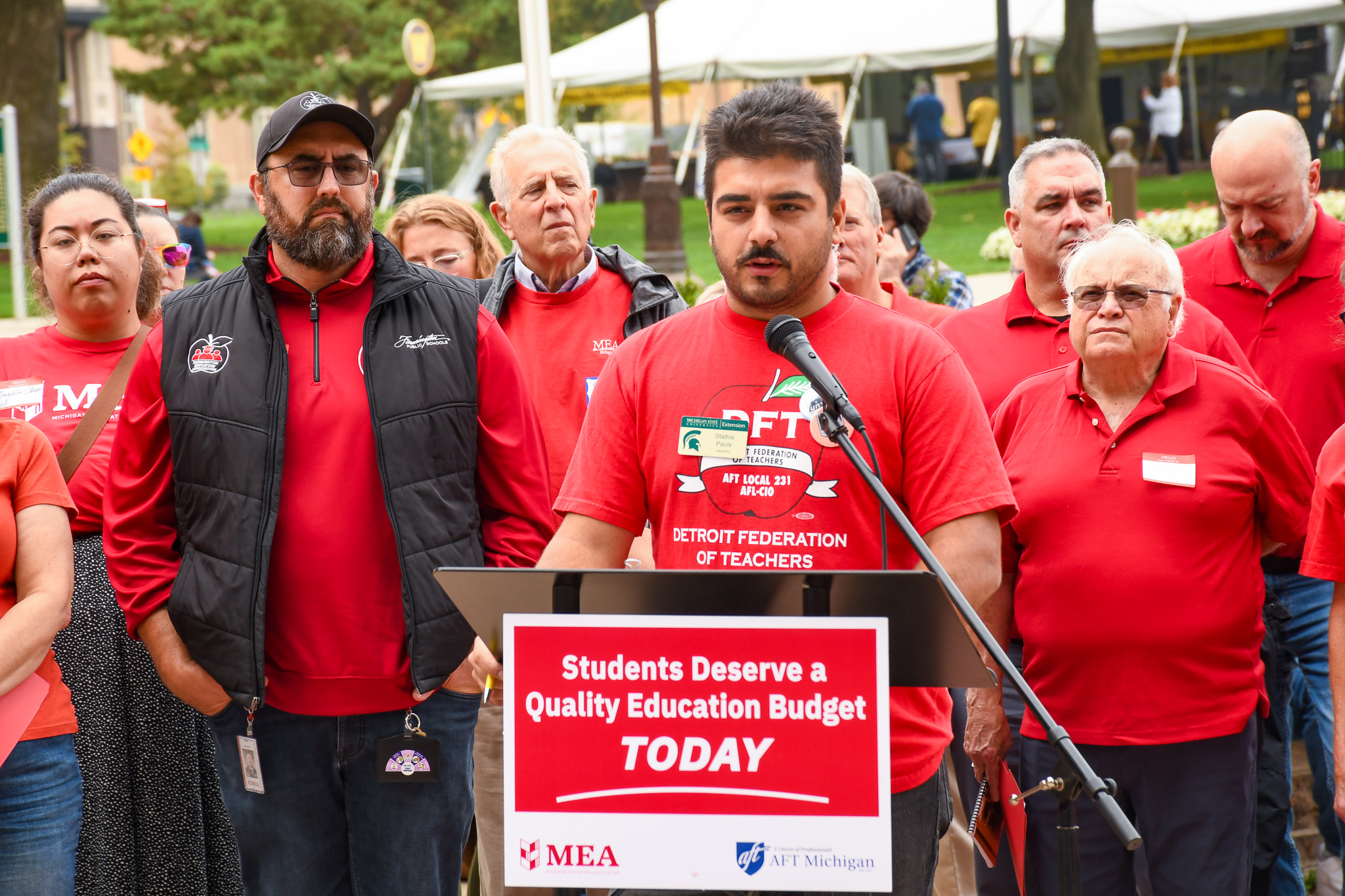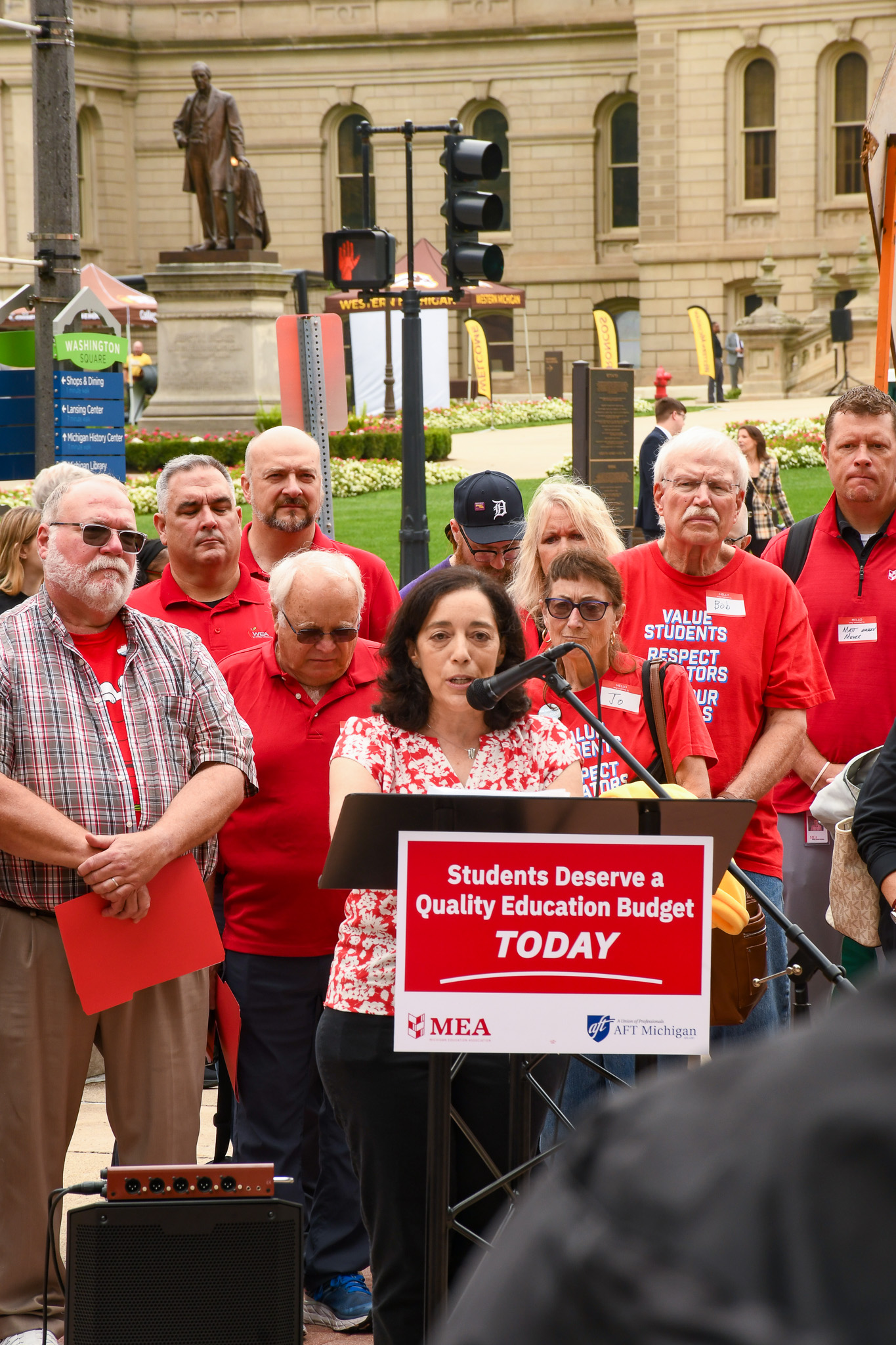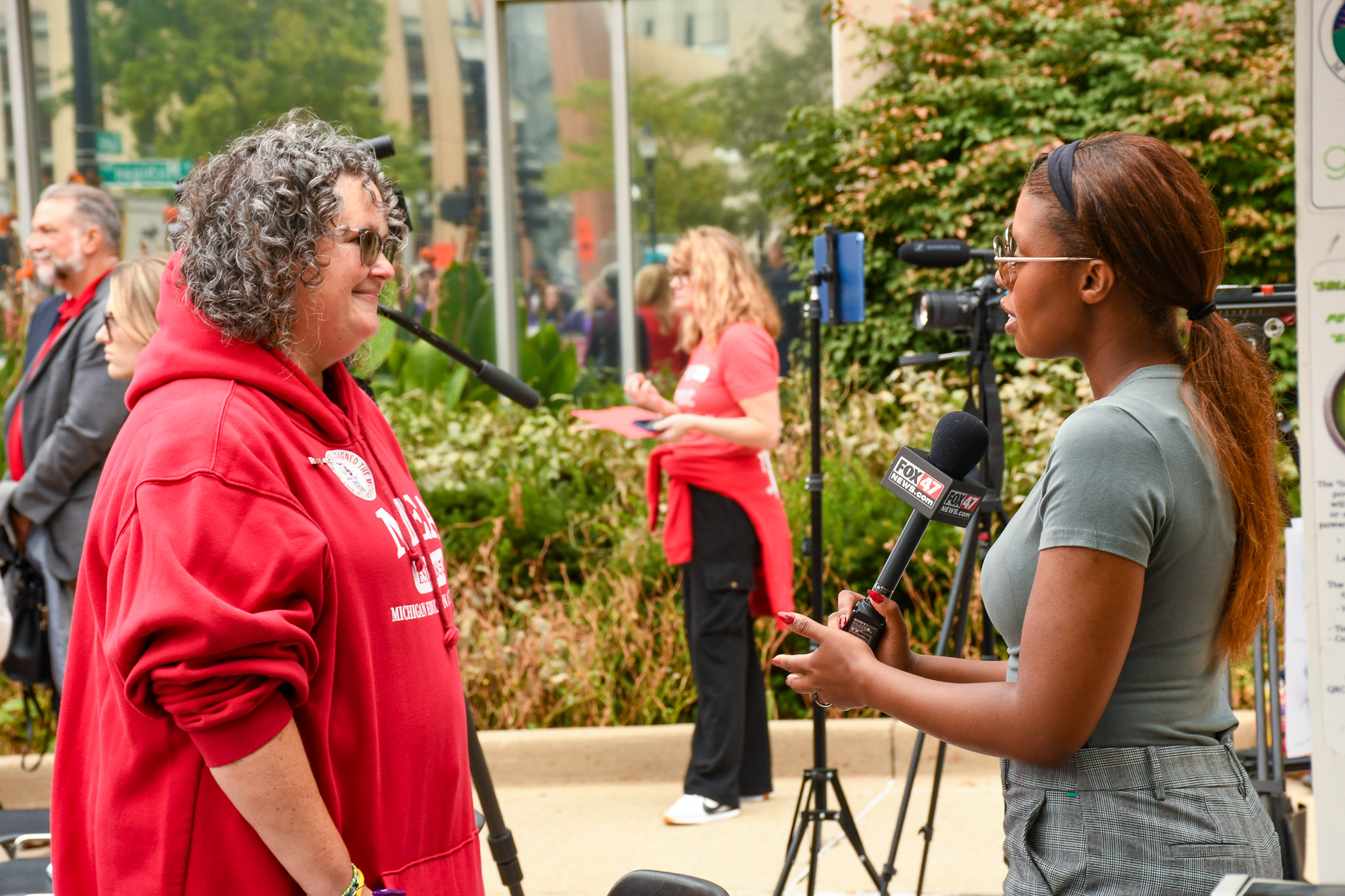Educators descend upon Capitol urging quick passage of the quality education budget students deserve
UPDATE 9/26: On Thursday night, word came in Lansing that a budget deal was reached for the state’s new fiscal year that starts this Wednesday, Oct. 1. Related to that deal, the House passed several revenue enhancing bills for road funding.
Details about what is in the education budget for preK-12 and higher education are unknown as of this writing. MEA is working hard to get those specifics and analyze them once available. In the meantime, it’s important for members to continue making their voices heard with lawmakers to urge passage of a quality education budget that invests every dollar possible in student success.
Members can continue to email their lawmakers using this link or they can use these links to be automatically connected by phone to the offices of their Representative and Senator.

With just a week to go before the state budget deadline, educators from across Michigan gathered at the state Capitol on Wednesday to urge lawmakers to pass a strong education budget that fully invests in Michigan’s students and public schools.
“Educators all across our state came to the Capitol today to speak to our individual lawmakers and urge them to pass a strong education budget that invests in our students, our schools and our communities,” said Chandra Madafferi, a teacher from Oakland County and President & CEO of the Michigan Education Association. “Michigan students and families deserve an education budget that can make our state a national leader in education, talent development, job preparedness and opportunity for all.”
Michigan has made some incremental progress in school funding over the past few years, thanks to efforts from Gov. Gretchen Whitmer and lawmakers from both parties to increase our state’s investment in our local schools. However, Michigan still ranks in the bottom half of the nation in per-student funding, according to a recent report by the National Education Association. In the 2023-24 school year, Michigan public schools spent $14,489 in combined federal, state and local funding per student, the study found, compared with a national average of $16,990.
“I can tell you firsthand what it looks like as a teacher to look out at my classroom of 35 students and to know that they don’t have the resources they need to be successful,” said Terrence Martin, a Detroit teacher and President of AFT Michigan. “This cannot continue. We are urging legislators to do more. We are asking that lawmakers continue negotiating for a strong education budget that secures a better future for our students and schools.”
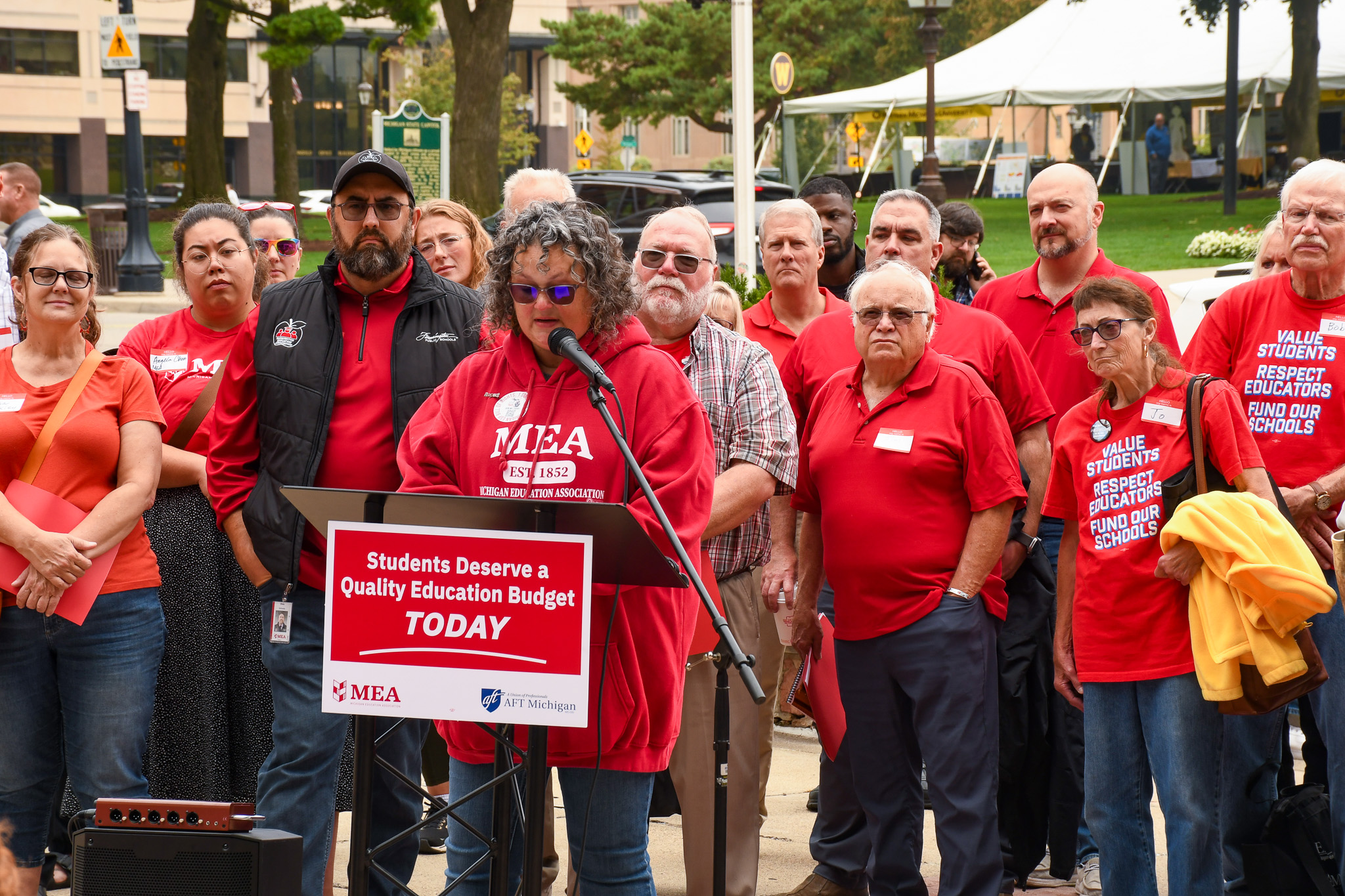
Allyson McCann, a paraprofessional in Grand Ledge Public Schools who works with students with special needs, said lawmakers must protect state funding allocated specifically for student mental health, universal school meals, and supporting at-risk students.
“Every student, regardless of their background or challenges, deserves the opportunity to succeed,” McCann said. “That’s why it’s so important that lawmakers protect programs that help our most at-risk and vulnerable students. Our most vulnerable students are often unable to advocate for themselves, and that’s why it’s crucial for us, as educators and parents, to stand up and make our voices heard. And with one voice, we are asking state lawmakers to provide our schools with all the funding they need — so that no student in need is left to fend for themselves.”
Eric Rader, PhD., a professor at Henry Ford College, said, “It’s critical for Michigan students that lawmakers pass a budget that fully funds public universities and smaller community colleges alike while not taking resources from neighborhood public schools.”
“We must make college affordable in this state,” Rader said. “We cannot be forced to compete with K-12 schools in the School Aid Fund. That’s not fair to K-12 schools, and it’s not fair to higher education institutions.”
Stathis Pauls, a SNAP-Ed health and nutrition instructor with Michigan State University Extension, works to help low-income families manage their food budgets and make healthier food choices. The SNAP-Ed program, which has served more than 115,000 people in all 83 Michigan counties over the past year, relied on a $10.5 million annual federal grant; however, Congress eliminated that funding as part of the “One Big Beautiful Bill” that passed in July. Pauls is urging state leaders to step up and replace the lost funding, so children and families can continue receiving the help they need.
“Although this program seems to operate in the background, countless communities benefit from SNAP Education,” Pauls said. “Our program instructors are reaching our communities in classrooms, churches, community centers, early child education centers and senior centers.”
Pauls pointed out that “SNAP Education has an outsized impact for its $10.5 million cost,” and urged lawmakers to “please continue funding this vital program in our Michigan communities.”

Jennifer Hollander, a school social worker from Huron Valley Schools, said, “Now is a critical time, and lawmakers have a critical decision to make: invest in our future, or fall further behind other states and countries.”
“Every student, regardless of their ZIP code, family income, or disability, deserves the opportunity to succeed,” said Jennifer Hollander, a school social worker from Huron Valley Schools. “Our students deserve the best and brightest educators who can deliver the best education possible. Our students deserve a chance at a good, stable life after graduation, with career opportunities in our home communities. We can do better by them — and we must do better for them.”
“We are asking our state lawmakers to invest in our children’s future by passing an education budget that provides adequate and equitable funding for our neighborhood schools,” Hollander said. “Let’s come together as one — regardless of politics — to create a brighter future for our kids, our communities and our state.”


